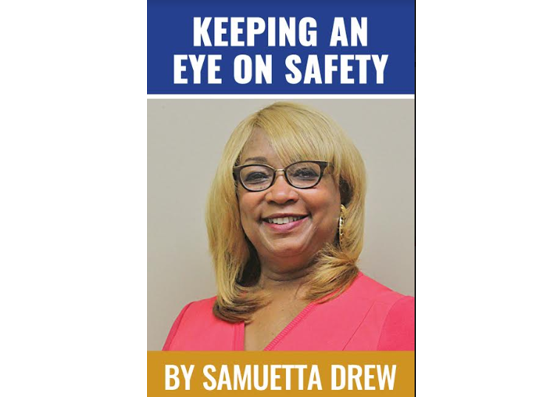World
Cameroon archbishop says ‘democracy doesn’t exist’ under world’s oldest head of state

YAOUNDÉ, Cameroon – Against a backdrop of poverty, violence and de facto one-man rule, a Catholic archbishop in Cameroon has blasted a perceived lack of genuine democracy ahead of elections expected next year.
“Democracy in Cameroon exists in name only; in reality, it doesn’t exist,” said Archbishop Samuel Kleda of Douala in an interview on a local television channel, Equinox TV.
“Before the vote, we already know who’s going to win,” Kleda said. “That’s not democracy.”
At 91 years of age, President Paul Biya of Cameroon is both the oldest head of state in the world and the longest-serving national leader who isn’t a royal. He’s held the presidency since 1982, having previously served as Prime Minister from 1975-82.
After imposing a one-party system on the country for the first decade of his rule, Biya reluctantly accepted democratic elections in 1992, winning that and subsequence elections in 1997, 2004, 2011 and 2018, in each case amid widespread charges of fraud.
The aging Biya recently has been compelled to cancel several planned overseas engagements, including a scheduled appearance at an Oct. 4-5 summit of French-speaking nations in France, and reportedly is currently under medical supervision at the Intercontinental Hotel in Geneva, Switzerland. Nonetheless, his followers are urging him to stand for reelection once again in elections next year.
Catholicism represents around 40 percent of the population in Cameroon and has a significant social role in the country; Biya himself is the son of catechists and a former Catholic seminarian. The church has long been a critical voice, with the late Cardinal Christian Tumi frequently challenging the Biya regime on peace, human rights and democracy.
Kleda is continuing that tradition, taking a swipe at the institution in charge of organizing elections in Cameroon-Elections Cameroon (ELECAM), arguing that what has been called an independent elections governing body is anything but: A majority of members, he noted, come from Biya’s political party.
“Who organizes elections in Cameroon? This needs to be clearly defined,” Kleda said.
“As the saying goes, people don’t organize elections to lose,” Kleda said in his interview. “That says it all.”
The cleric’s concerns have found traction among Cameroon’s political leaders.
Prince Ekosso, leader of the United Socialist Democratic Party (USDP), a leading opposition force, echoed Kleda’s sentiments, advocating for reforms such as lowering the voting age from 21 to 18, introducing a single ballot paper, and empowering local polling commissions to declare election results.
Muma Bih Yvonne, National Secretary for Political Education and Training for Cameroon’s Social Democratic Front, called for a complete overhaul of the electoral process, from registration to the proclamation of results.
“We all know that in every civilized democracy, the electoral calendar is known well in advance. That’s not the case with Cameroon,” she told Crux, referencing the fact that the Head of State decides the dates for elections.
“I think the electoral code has to be revised,” she said, insisting that citizens’ access to registration centers should be made easier because “to get registered is so cumbersome.”
“You get registered, you can’t get an electoral card immediately,” she said.
“Cameroonians don’t have the money and time to make multiple trips to the election offices to check whether they are registered or not. Why not computerize the process from registration to the declaration of results? It’s very possible,” she told Crux.
“During elections themselves, when the polls are opened, why should cards still be distributed on that day when it is said that once you are identified as a Cameroonian, you can use your ID card to vote?”
She urged that ELECAM, the elections management body, should “bring on board all stakeholders to discuss why Cameroon cannot copy best practices from other countries. Other countries hold elections, and the next day the results are ready.”
She says it’s abnormal that election results in Cameroon take over a month to be declared.
Pundits have suggested that the long wait for results provides the ruling party to tamper with the results.
Bih also complained about what she termed the “horrible issue of multiple ballot papers.”
“Let a single ballot paper be used and you’ll see how it will reduce fraud in the electoral process,” she said. After every election, you have litigation because people are disgruntled with the process.”
Kleda emphasized that such changes are critical for the conduct of elections that are “free, democratic, and free from fraud.”
“If these conditions are met, we’ll truly see who wins elections in our country,” he said.
Elections in Cameroon have typically ended with lawsuits, as opposition parties always claim the elections were rigged. The last presidential race in 2018 is a prime example, in which the opposition candidate, Maurice Kamto, claimed victory.
The leader of the Cameroon Renaissance Movement last April called for the resignation of ELECAM’s director-general, accusing him of being “on a mission against the Cameroonian people.”
Kleda called for “a change in the electoral code so that all candidates have an equal chance, and the best candidate wins.”
Cameroonian political scientist Immanuel Tatah Mentan accused Biya’s party, the ruling Cameroon People’s Democratic Movement, of perfecting the art of electoral fraud.
“No opposition political party or candidate can bring Biya down,” he said, predicting that if that ever were to happen, “The CPDM will implode.”
Cameroon faces a host of social challenges, including estimates that one Cameroonian in five lives in extreme poverty, and a long-running, occasionally violent insurrection in the country’s south and southwestern regions among Cameroon’s English-speaking minority, which complains of systematic bias and second-class citizenship.








